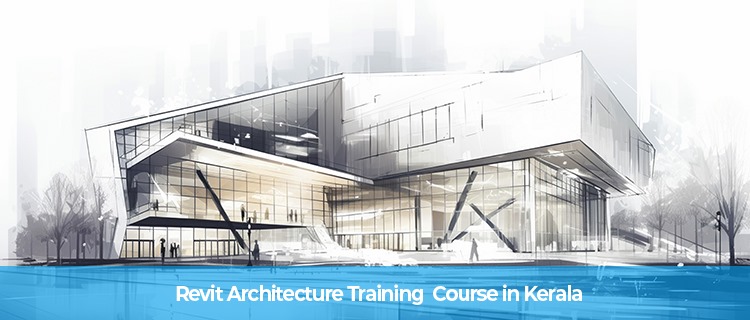
Architecture and design are fast-moving and growing subjects in which technology is playing a vital role in shaping conceptualization, development, and bringing buildings into life. The current leading player in this respect is Revit Architecture, which is technically a very powerful tool for BIM, Building Information Modeling. It goes on to help the architect and designer with carrying out a detailed 3D model, generating construction documentation, and working more closely with a team.
In Kerala, the demand for professionals skilled in Revit is growing fast. Considering that most architectural firms and construction companies are increasingly adopting BIM processes, formal training in Revit Architecture has become a key asset in realizing career advancement in architecture.
Revit Architecture is a software developed by Autodesk for use by architects, engineers, and builders in the industry. It connects everything in the building lifecycle-from design and visualization to analysis and construction documentation-in one model.
Mainly, working with Revit relies on the construction of building information models, for which one can construct buildings in 3D while generating 2D drawings automatically with their respective documentation. The system keeps the architect in tune with a fast-tracked designing process, accuracy of design, and with the guarantee that every particular detail would be considered on site.
Revit changed the way architects treated their projects by offering a number of advantages to become an indispensable assistant for contemporary architects. Revit allows designers to be more effective because it automates repetitive tasks and minimizes manual errors. Revit allows for an extremely collaborative environment-one in which multiple team members can literally work on the same model at the same time. Collaboration in real time reduces misunderstandings, and everyone knows the status of the project at any moment. The intelligent modeling enabled by Revit allows the architect to ensure precision at every level of the design.
Learning advanced features of Revit yourself can be much harder, and it often takes too much time. That is why registering for a professional training course is so important-you will receive structured guidance from experts who know all the intricacies of Revit. A formal course on Revit makes you understand complex tools and techniques far more speedily. Instead of trying to figure things out in several weeks, a professional course gives you the opportunity to learn in the shortest time what all the software has to offer in terms of expertise.
In any course on Revit Architecture, you will learn how to create 3D models, construct proper construction documents, and use advanced features like material take-offs and clash detection. These are some basic skills that will help in creating quality designs and helping one work more productively on projects.
From Basics to Advanced Features One would expect a good training program to cover all aspects from basic to some advanced features of Revit. Look for a class that covers, but is not limited to, such topics as parametric modeling, rendering, and custom family creation. This will give balanced knowledge of the software.
Industry-experienced instructors provide insight into those subtle aspects of how the software works beyond simple technical features. This is how you'll learn to use the tools of Revit in real situations, get useful tips on enhancing your workflow, and find solutions for a lot of problems arising during architectural design.
The best way to learn Revit is by actually doing it. What that means is any good training course should have real-world assignments and projects where one can apply what they have learned, reinforcing their confidence level.
Certification in Revit can make all the difference when one applies for a job. Also, career support services are provided by some of the training providers, such as building a resume and preparing for interviews apart from higher chances of getting a job.
There are numerous training centers and institutes teaching Revit Architecture in Kerala, both to freshers as well as working professionals.
Another very important criterion includes the content of the course, instructor experience, and hands-on training availability. You must prefer an institution that would allow you flexi-learning options, such as online classes or weekend sessions, for your convenience.
Professional training can help accelerate your learning curve in finding success within the architectural industry by equipping you with the necessary knowledge and skills. Guided learning ensures you gain a deep understanding of the full capabilities of the software.
With a structured course, you learn all the features in Revit-from basic to advanced-in a structured manner. Such a structured approach helps you lay a strong foundation and at the same time equips you with the requisite skills for more complex architectural projects.
Revit Architecture gives the ability to architects and designers to increase projects' efficiency, accuracy, and collaboration. The first step in mastering this strong software could be taking part in a formal training class in Revit Architecture in Kerala.
Are you ready to develop skills in Revit? Commence your journey today by discovering the right place to receive training!
Call Now